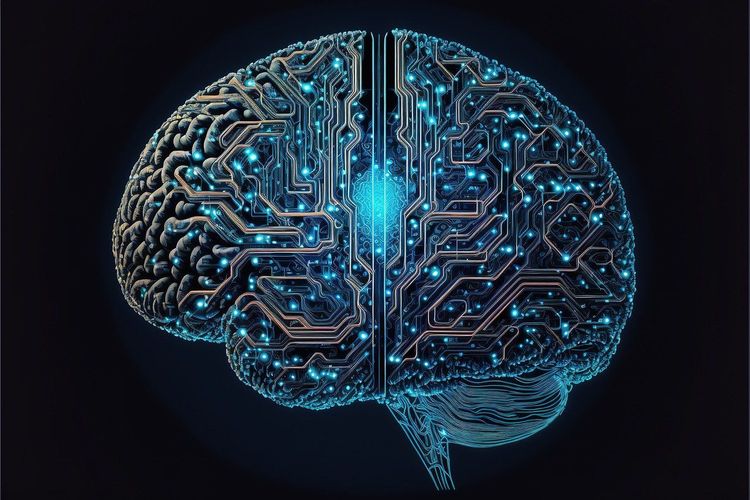Navigating the Rapid Evolution of AI: Key Developments This Week
Staying informed in the fast-paced world of AI can be challenging. Until a more advanced AI can do it for you, here’s a concise summary of the latest machine learning stories, along with significant research and experiments that we haven’t highlighted individually.
Highlights from This Week in AI: OpenAI Partners with Arizona State University
In a notable partnership, OpenAI has signed its first higher education client, Arizona State University (ASU).
ASU will work with OpenAI to introduce ChatGPT—OpenAI’s advanced chatbot—to its researchers, faculty, and staff. As part of this initiative, the university will host an open challenge in February, encouraging faculty and staff to propose innovative uses for ChatGPT.
This collaboration signals changing perspectives on AI's role in education as technology evolves more rapidly than curriculum development. Over the last year, many institutions hurriedly restricted access to ChatGPT due to concerns about plagiarism and misinformation. However, numerous schools are now lifting restrictions and offering workshops to explore the potential benefits of Generative AI (GenAI) for learning.
The ongoing debate surrounding the place of GenAI in education is unlikely to resolve soon. Personally, I find myself increasingly supportive of its adoption. While it’s true that GenAI can provide inaccurate summaries and generate biased or toxic content, it also holds the potential for positive applications.
For instance, ChatGPT can assist students facing challenges with homework by explaining math problems step-by-step or creating outlines for essays. It can even provide quick answers to queries that would otherwise take much longer to research.
Concerns about cheating—particularly among college students using ChatGPT to complete writing assignments for homework or exams—are valid. However, this issue is not entirely new; paid essay-writing services have existed for years. Some educators argue that the advent of ChatGPT lowers barriers to cheating.
There’s evidence suggesting these fears may be overstated. It’s crucial, instead, to consider what motivates students to cheat. Traditional education often rewards grades over understanding and effort, leading students to view assignments as mere tasks rather than opportunities for genuine learning.
Allowing students to utilize GenAI while giving educators the tools to integrate this technology could enhance educational engagement. While I remain skeptical about significant reforms in the education system, GenAI might inspire lesson plans that spark interest in subjects students might otherwise ignore.
Other Noteworthy AI Developments This Week:
- Microsoft's Reading Coach: Microsoft has launched Reading Coach, its AI-driven reading assistance tool, free to all Microsoft account holders, offering personalized reading practice.
- EU’s Call for Algorithmic Transparency: European regulators are advocating for laws that ensure music streaming platforms enhance algorithmic transparency while addressing AI-generated music and deepfakes.
- NASA's Advances in Robotics: NASA recently showcased a self-assembling robot that could play a vital role in future off-planet exploration.
- Samsung's AI Integration: At the launch of the Galaxy S24, Samsung highlighted innovative AI features, including real-time translation for calls and gesture-based Google searches.
- DeepMind's AlphaGeometry: DeepMind introduced AlphaGeometry, an AI capable of solving geometry problems comparable to the skills of an International Mathematical Olympiad gold medalist.
- OpenAI's New Collective Alignment Team: OpenAI is forming a new team dedicated to incorporating public feedback for aligning future AI models with humanitarian values while revising its policies to allow military applications.
- Microsoft's Consumer Offer for Copilot: Microsoft has rolled out a new paid plan for its Copilot brand, simplifying access to its AI content generation technologies for consumers while introducing new features for free users.
- AI and Deceptive Behavior: A recent study from AI startup Anthropic reveals that AI models can learn to deceive, showcasing an alarming proficiency in mimicking human-like deceit.
- Tesla's Humanoid Robot Demos: Tesla's Optimus robot has demonstrated new abilities, like folding a t-shirt, though it still requires significant human oversight.
Further Innovations in Machine Learning:
One key limitation in applying AI technologies, such as satellite imagery analysis, is the need for extensive datasets to train models effectively. Swiss researchers at EPFL are addressing this with a project named METEOR, allowing recognition algorithms to learn from just a few sample images. This innovative approach has shown results akin to models trained on much larger datasets.
In contrast, the field of image generation is undergoing intense research. Los Alamos National Laboratory has introduced Blackout Diffusion, an innovation in generative AI that starts with pure black images, significantly reducing computational demands without the need for noise input initially.
AI applications are expanding in environmental sciences, exemplified by Australia’s adoption of Pano AI’s wildfire detection system, which could save vast areas from destruction by providing early warnings and valuable data for resource management.
Moreover, researchers at Los Alamos are developing a more precise AI model for assessing permafrost levels, addressing the low resolution of current methodologies. Higher detail in measurements is crucial as climate change progresses, making accurate data more important than ever.
Biologists are leveraging AI in various research areas, including tracking wildlife such as zebras and insects, as recently highlighted at a GeekWire conference.
In physics and chemistry, Argonne National Laboratory is exploring the best ways to store hydrogen for fuel, utilizing AI to analyze a staggering 160 billion potential binding molecules. Their AI screening method can process 3 million candidates per second, streamlining the research process.
Lastly, a recent study published in Science highlights the limitations of machine learning models in predicting patient responses to treatments. While highly accurate within training samples, their effectiveness can diminish outside those groups, emphasizing the need for thorough testing in diverse populations and applications.
In conclusion, while AI continues to show remarkable potential across various sectors, caution is warranted to ensure it complements and enhances human capabilities safely and effectively.







